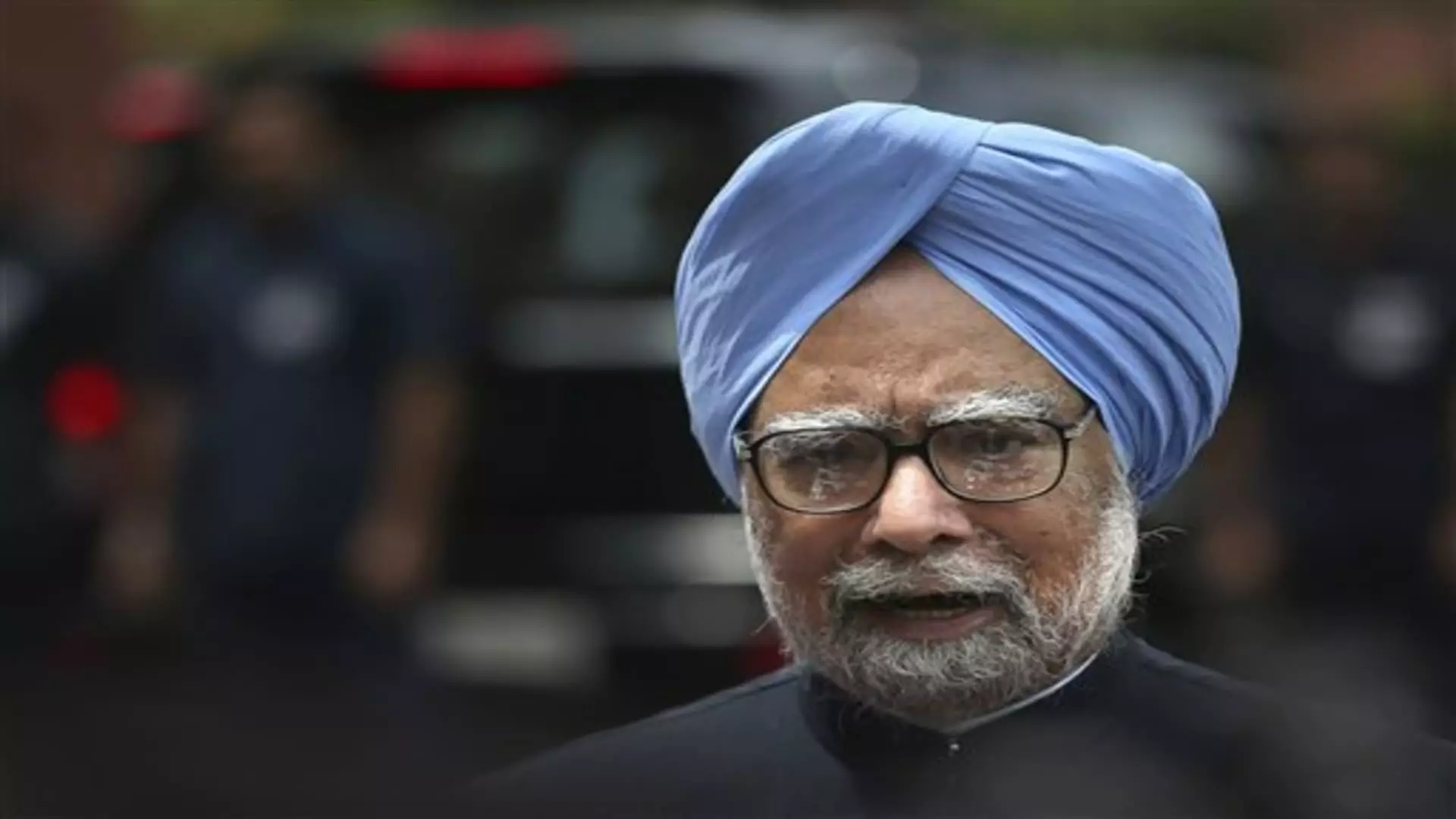Manmohan Singh, India’s first Sikh Prime Minister and an economist of repute, passed away at the age of 92, leaving behind an indelible mark on the nation’s socio-economic landscape. Often referred to as a “reluctant king,” Singh’s tenure was characterized by a blend of transformative policies that propelled India into a new era of economic growth, and profound challenges that marred his legacy. Singh, who played a pivotal role in shaping modern India, was heralded by many, including Prime Minister Narendra Modi, as one of the most distinguished leaders in the country’s history.
Singh was born into poverty in what is now Pakistan during British colonial rule, an experience that profoundly influenced his worldview and policy decisions. His academic journey was nothing short of remarkable; Singh studied by candlelight, determined to succeed in an era marked by widespread economic disparities. He earned scholarships to prestigious institutions like Cambridge and Oxford, where he focused on economic theories that would later inform his policies. His doctoral thesis examined the crucial role of exports and free trade, foreshadowing his future economic reforms that would open India to the global economy.
Singh’s initial foray into economics saw him rise through the ranks to become the Governor of the Reserve Bank of India and serve as a key advisor to the government. His unexpected appointment as Finance Minister in 1991 marked a turning point. Amidst a dire balance of payments crisis, Singh initiated bold reforms that not only stabilized India’s economy but also set the stage for its integration into the global market.
As Finance Minister, Singh’s policies were revolutionary, introducing deregulation and liberalization that transformed an insular Indian economy into one poised for global competitiveness. Quoting Victor Hugo in his inaugural budget presentation, Singh famously articulated that “no power on earth can stop an idea whose time has come.” He foresaw India emerging as a significant economic force, and many would argue that his vision materialized during his later terms in office.
His reforms were not merely economic maneuvers; they were a pathway out of poverty for millions. Singh’s policies successfully lifted hundreds of millions out of extreme deprivation, which constituted one of his most significant humanitarian achievements. The economic growth experienced in the years following his reforms positioned India as one of the fastest-growing major economies in the world.
Ascending to the Prime Ministership
Singh’s elevation to the Prime Ministership in 2004 was not just a personal triumph; it was a testament to the unexpected twists of Indian politics. Invited to lead by Sonia Gandhi, the leader of the Congress party, Singh entered office at a time when he was more renowned for his technocratic expertise than for political charisma. His tenure witnessed an unprecedented period of economic prosperity, allowing his government to implement various welfare programs aimed at the rural poor.
His administration achieved notable milestones, including a landmark nuclear deal with the United States in 2008, which facilitated peaceful nuclear trade and strengthened Indo-U.S. relations. This strategic partnership marked a significant shift in India’s foreign policy and opened new avenues for cooperation in various fields.
Despite these accomplishments, Singh’s tenure was not without strife. His government often grappled with burdensome political dynamics, particularly from coalition partners and internal party dissent. Despite being respected globally, Singh was frequently critiqued at home for the perception that real power resided with Sonia Gandhi, overshadowing his leadership.
Moreover, his second term saw a series of political scandals that tainted his reputation and rendered his government vulnerable. The failure to address corruption allegations within his administration culminated in mass protests and questioned his effectiveness as a leader. The latter part of his premiership was marked by sluggish economic growth amid global financial turmoil and an increasingly fractured political landscape.
The Legacy of Manmohan Singh
As Singh reflects on his career, he remains steadfast in his belief that history will ultimately judge him more kindly than contemporary critiques. His intellectual rigor, commitment to economic reform, and values of integrity have left a positive footprint in India’s vast political history.
Survived by his wife and three daughters, Manmohan Singh will be remembered not only as a reluctant politician but also as a visionary who placed India on the global stage, contributing significantly to the nation’s trajectory towards democracy and development. His legacy continues to inspire discussions about the delicate balance between policy-making, governance, and leadership in India’s multifaceted democracy.

Leave a Reply